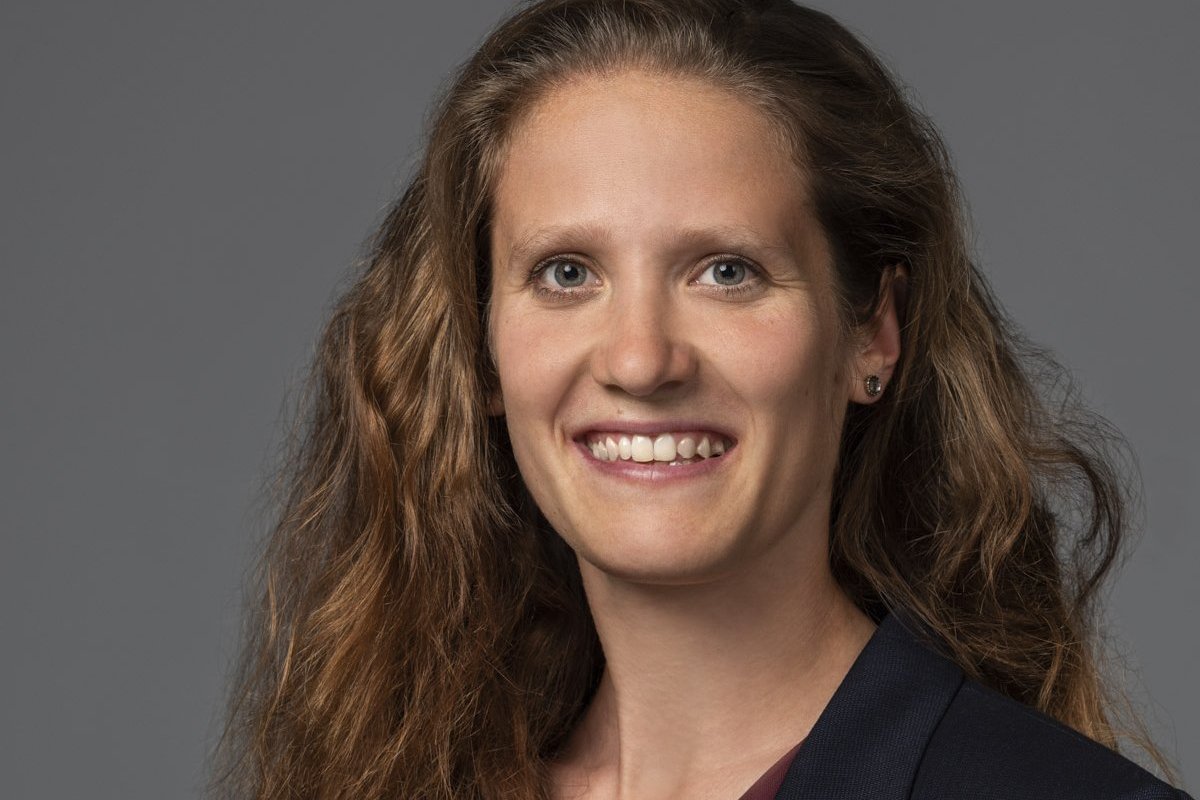Department 1 – Informal Care & Research Data

The central topic of the department is the informal care provided within families in private households . This form of care is predominant in Germany and Europe (Statistisches Bundesamt (Destatis) 2022, European Commission 2021).
By incorporating pluralistic methods and specialist disciplines, we identify heterogeneous, individual needs and living situations in domestic care arrangements as well as recurring, typical need scenarios.
A further focus of our work lies in capturing and analysing existing and new data sources in the field of ageing, care and digitalisation, in particular secondary analyses of large-scale population surveys and routine data from care and pension insurance.
In addition, we are investigating the individual and social aspects of (non-)utilisation of support services and how socio-economic, socio-psychological and socio-cultural factors promote certain forms of support or tend to lead to their rejection.
Our guiding principle is to focus on the actual needs of the target groups for digital technologies in the area of ageing and care, which are often characterised by a technology-driven approach (see Braeseke et al. 2022; Kricheldorff 2020; Hoff and Pottharst 2023; Sala-González et al. 2021; Künemund 2015; Elsbernd et al. 2014). In this context, we also specialise in the social and psychological prerequisites for digitalisation.
Transferring our research results into practice, politics and society can contribute to the further development of all forms and the suitability of support services for informal care that focuses on the target group.
Literature
- Braeseke, G., Pflug, C., Lingott, N. & Pörschmann-Schreiber, U. (2022). Technische Assistenzsysteme in der pflegerischen Versorgung. In E.-W. Luthe, S. V. Müller & I. Schiering (ed.), Gesundheit. Politik - Gesellschaft - Wirtschaft. Assistive Technologien im Sozial- und Gesundheitssektor (pp. 649–667). Springer Fachmedien, Wiesbaden. doi.org/10.1007/978-3-658-34027-8_26
- Elsbernd, A., Lehmeyer, S., Schilling, U., Warendorf, K. & Wu, J. (2014). Bedarfsgerechte technikgestützte Pflege in Baden-Württemberg - Technologien und Dienstleistungen für ein selbstbestimmtes Leben im Alter: Abschlussbericht April 2014. Hochschule Esslingen. https://sozialministerium.baden-wuerttemberg.de/fileadmin/redaktion/m-sm/intern/downloads/Downloads_Pflege/Inno-programm-Pflege-2011_Abschlussbericht_Esslingen_2014.pdf
- European Commission (ed.). (2021). Long-Term Care Report: Trends, challenges and opportunities in an ageing society. Joint Report prepared by the Social Protection Committee (SPC) and the European Commission (DG EMPL) (Nr. 1).https://ec.europa.eu/social/main.jsp?catId=738&langId=en&pubId=8396
- Hoff, A. & Pottharst, B. (2023). The role of assistive technologies in home care delivery in Germany: between vision and reality. In K. Hamblin & M. Lariviere (eds), Care Technologies for Ageing Societies: An International Comparison (pp. 72–97). Policy Press.https://doi.org/10.51952/9781447364825.ch004
- Kricheldorff, C. (2020). Die Rolle von digitalen Technologien zur Unterstützung von Angehörigen pflegebedürftiger älterer Menschen: Expertise zum Achten Altersbericht der Bundesregierung. Deutsches Zentrum für Altersfragen. https://www.achter-altersbericht.de/fileadmin/altersbericht/pdf/Expertisen/Expertise-Kricheldorff.pdf
- Künemund, H. (2014). Chancen und Herausforderungen assistiver Technik. Nutzerbedarfe und Technikakzeptanz im Alter. Zeitschrift für Technikfolgenabschätzung - Theorie und Praxis, 24(2), 28–35. https://doi.org/10.14512/tatup.24.2.28
- Sala-González, M., Pérez-Jover, V., Guilabert, M. & Mira, J. J. (2021). Mobile apps for helping informal caregivers: a systematic review. International Journal of Environmental Research and Public Health, 18(4), 1–18. https://doi.org/10.3390/ijerph18041702
- Statistisches Bundesamt (ed.). (2022). Pflegestatistik. Pflege im Rahmen der Pflegeversicherung: Deutschlandergebnisse. 2021. https://www.destatis.de/DE/Themen/Gesellschaft-Umwelt/Gesundheit/Pflege/Publikationen/_publikationen-innen-pflegestatistik-deutschland-ergebnisse.html
Services of the department
Selection
- In-depth expertise and implementation of research projects in the areas of ageing / care of relatives / need for care as well as digital services in the area of informal care
- Expertise in family research, interdisciplinary ageing research, sociology (esp. family & health), care research, social work, psychology (esp. engineering psychology/human factors)
- Well-founded methodological skills in quantitative & qualitative social research (focus: survey research)
- Development of data sources and data analysis
- Committee work and policy advice at local, state, federal and EU level
- Scientific advice for stakeholders in the areas of caring for relatives, ageing and digitalisation
- Target group-orientated communication of results in German & English
Our consulting activities
Selection
Consultation, Beratung für Landkreis Günzburg zur Fortschreibung SPGK zum Bereich Digitalisierung:Erstellung von Fragebogendimensionen und Vorbereitung Bürgerbefragung zum Thema Digitalisierung, 2021-2022 (zur Kammer, K., Weber-Fiori, B., Wörle, T., Deisenhofer, K., Geiselhart, J.)
Panel-Discussion, Stakeholder meeting CREW project: "Care, Retirement & Wellbeing of Older People Across Different Welfare Regimes", Université Catholique de Louvain, 22.06.2022 (Schütz, J.)
Panel-Discussion, Runder Tisch Pflegende Angehörige, Bayerisches Landesamt für Pflege, 06.12.2022 (Hudelmayer, A., Schütz, J.)
Expert meeting, High-level expert meeting: Regional population diversity and social cohesion, Population Europe Projekt “Regional population diversity and social cohesion in local contexts”, gefördert durch Stiftung Mercator, 05.04.2022 [online] (Schütz, J.)
Presentation, Einsatz einer digitalen Versorgungsanwendung für informell Pflegende. Ergebnisse und Empfehlungen der Studie DiVa. Präsentation für die AOK Bayern, 18.09.2023 (Hudelmayer, A., Schütz, J., zur Kammer, K., Karl, A.)
Presentation, Einsatz einer digitalen Versorgungsanwendung für informell Pflegende „DiVa". Präsentation für die NUI Care GmbH, München, September 2023, (zur Kammer, K., Schütz, J., Hudelmayer, A., Karl, A.)
Scientific consultation, Arbeitskreis Pflege, Wissenschaftliche Beratung, Landratsamt Oberallgäu/Gesundheitsregion plus, 06.12.2023 (Schütz, J., Aigner, J.)
Scientific consultation, Arbeitsgruppe "Demenz/Psychische Erkrankungen/Ältere Menschen mit Behinderung", Wissenschaftliche Beratung im Rahmen der Fortschreibung des Seniorenpolitischen Gesamtkonzeptes der Stadt Kempten, 2023-2024 (Hudelmayer, A.)
Scientific consultation, Arbeitsgruppe "Pflege/Pflegende Angehörige", Wissenschaftliche Beratung im Rahmen der Fortschreibung des Seniorenpolitischen Gesamtkonzeptes der Stadt Kempten, 2023-2024 (Schütz, J., Hudelmayer, A., Aigner, J.)


